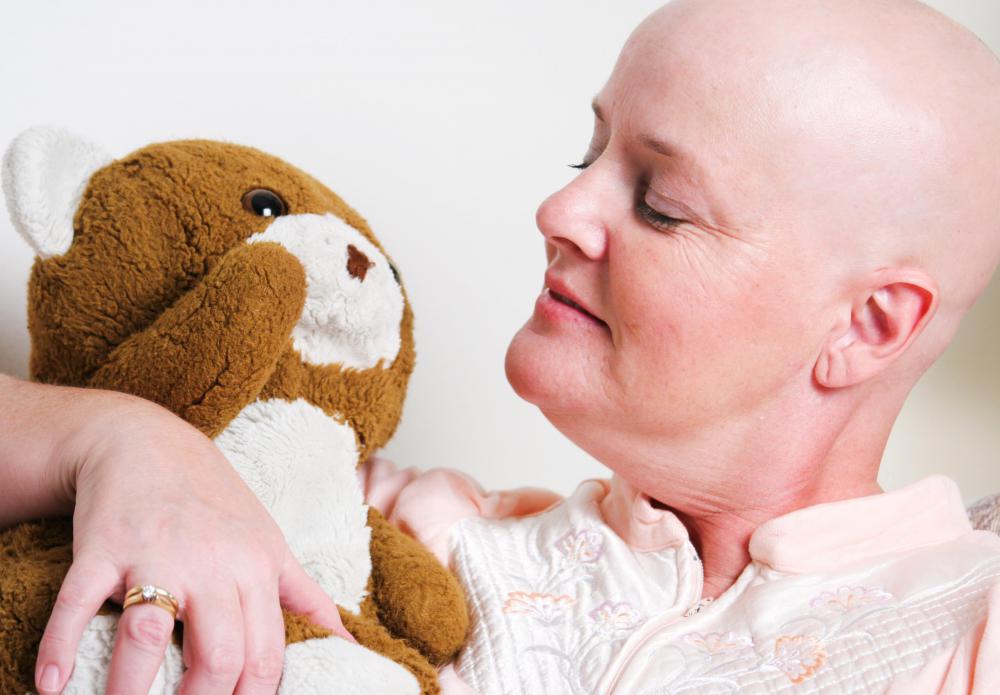At TheHealthBoard, we're committed to delivering accurate, trustworthy information. Our expert-authored content is rigorously fact-checked and sourced from credible authorities. Discover how we uphold the highest standards in providing you with reliable knowledge.
What is Induction Chemotherapy?
Induction chemotherapy is a first-line treatment for cancer in which a patient is given doses of chemotherapy first. These doses may be high, with the goal of attempting to quickly attack the cancer, and after induction chemotherapy, additional treatment options can be explored. This treatment is typically supervised by an oncologist, a medical professional who specializes in cancer treatment, and is administered in a hospital setting, although the patient is usually allowed to go home between treatments.
There are several settings in which induction chemotherapy may be indicated. Some cancers are extremely chemosensitive, and chemotherapy may be the only form of cancer therapy needed. For these cancers, several rounds of chemotherapy are used and then the patient is evaluated to see if additional chemotherapy will be necessary.

Very high doses of drugs are often used in induction chemotherapy, with the goal of avoiding repeat cycles in the future by eliminating the cancer with the first few rounds. The hope is that this type of chemotherapy will put the patient into remission. In some cases, although the induction chemotherapy will eliminate much of the cancer, additional treatment will be required. Consolidation or maintenance chemotherapy or radiation treatment may be used as a follow up treatment.

In other cases, induction chemotherapy may be used to buy time for the patient. Administering chemotherapy quickly can be the first step in cancer treatment, allowing more time for the patient to set affairs in order and explore treatment options with several oncologists along with consultants such as surgeons and radiologists.
Different chemotherapy drugs can be used, depending on the cancer involved, and a patient may be eligible for drugs which are in experimental trial phase. Patients who can get into chemotherapy clinical trials can access the latest medicine and contribute to cancer research, but they do run the risk of receiving less effective treatment than they would if they went with a conventional and accepted treatment regimen.

Before starting cancer therapy, it is a good idea to meet with at least two oncologists to see if there are substantial differences in their recommendations for treatment. Patients should bring documentation with them to such appointments to allow a doctor to look over medical imaging studies, bloodwork, and other information which may be relevant to the development of a treatment plan.
AS FEATURED ON:
AS FEATURED ON:



















Discussion Comments
Please re-evaluate one of your statements above: "they do run the risk of receiving less effective treatment." I do not think this is how clinical trials are designed - the new treatment is always added to best available treatment, i.e., all patients get the best treatment possible, while some patients get additional, unproven treatments. It is not ethical to deny best care to people who have bravely volunteered to participate in a clinical trial.
Thankfully, I've never been diagnosed with cancer, but I think I would be okay with induction chemotherapy if I ever were diagnosed. I've seen other people go through round after round of standard chemo drugs and they tell me it's very exhausting. If I had a type of cancer that responded well to chemo, I think I would want to try a more intensive round of chemotherapy first and hope it worked.
Post your comments